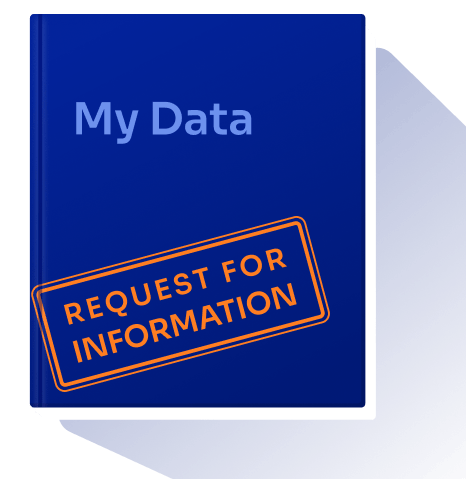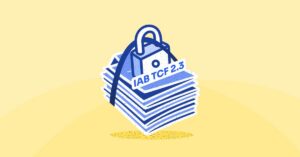Introduction
Data subject access requests (DSARs) are an essential component of data protection and privacy laws. These requests allow individuals to request information about the personal data that a company or organization holds about them, as well as to request that any inaccurate or unnecessary data be corrected or deleted. Under data protection laws such as the General Data Protection Regulation (GDPR) and the California Consumer Privacy Act (CCPA), data subjects have the right to access their personal data, request rectification of inaccurate data, and in some cases, have the right to have their data erased.
Organizations must respond to DSARs in a timely manner, providing the requested information in an easily understandable format. This guide will provide a detailed overview of DSARs, including the role of the data protection officer (DPO) and the steps that organizations should take in order to comply with data privacy laws, data protection laws, and regulations.
Data Subject Access Request (DSAR)
A data subject access request (DSAR) is a request made by an individual for information about the personal data that a company or organization holds about them. This may include information about how the data is being used, who it has been shared with, and whether any automated decision-making is taking place based on the data. Data subjects have the right to access their personal data under data protection laws. These laws also give individuals the right to request the rectification of inaccurate data and, in some cases, the right to have their data erased.
Data Protection Officer
The data protection officer (DPO) ensures that an organization complies with data protection laws and regulations, including handling DSARs. They act as a point of contact for individuals making DSARs. They are responsible for verifying the requestor’s identity, gathering the requested data, reviewing it for accuracy, and providing a written response. The DPO also ensures that the organization has appropriate processes and policies to handle a Data Subject Access Request and trains employees on handling these requests.
The DPO is independent and should not have conflicting interests with the organization. They must have the necessary skills, knowledge, and experience and should have regular access to senior management. They should also have a good understanding of the organization’s data processing activities and have the ability to carry out regular data protection audits.

The DPO is responsible for monitoring the organization’s compliance with data protection laws, regulations, and policies and should be notified of any data breaches or non-compliance issues. They should also act as a liaison between the organization and the supervisory authority and provide advice and guidance to management and employees on data protection matters.
Handling Data Subject Access Requests
When handling a DSAR, the first step is to verify the requestor’s identity. This may involve requesting a copy of the requestor’s driver’s license or other identification and any additional data that may be needed to confirm their identity. Organizations should also be prepared to handle DSARs from authorized representatives, such as legal counsel, and to handle requests made on behalf of another individual, such as a parent requesting data about their child.
Once the requestor’s identity has been verified, the organization must gather the requested data. This may involve searching through multiple systems and platforms to locate the data, as well as reviewing the data for accuracy. Organizations should also consider whether any of the data is sensitive personal data, such as health information or financial data, and take appropriate measures to protect this data.
To ensure the accuracy of data being provided, organizations should also conduct a thorough data mapping and inventory, which would help identify the different types of personal data that an organization collects, how it is collected, stored, and processed, and with whom it is shared. This would also help identify the third-party vendors who process the data on behalf of the organization and provide the requested data promptly.
After gathering the requested data, organizations must review it for accuracy and completeness. If any data is found to be inaccurate, organizations must take steps to correct it. Organizations should also consider whether any data is no longer necessary and should be deleted in response to a request for erasure.
Finally, the organization must provide a written response to the data subjects. The response should include all of the relevant information that has been requested and should be provided in an easily understandable format. Organizations should also include a copy of the requestor’s driver’s license or other identification and any additional data that may be needed to confirm their identity.
Data Minimization
Data minimization is an essential principle of data protection laws. It requires organizations to collect and process the personal data necessary for a specific purpose. This principle is closely related to data portability as it ensures that the data collected is only needed for a particular purpose and minimizes the chance of unnecessary data being transferred when a data subject access request is made.
Organizations should have a clear understanding of the data they collect, process and store and should only collect the data that is necessary for the specific purpose. This can be achieved by implementing data mapping, which is the process of identifying and documenting the personal data that an organization holds and the purpose for which it is used.
Data minimization also requires organizations to implement data retention policies, which outline how long personal data should be kept and when it should be deleted. This helps organizations to avoid keeping unnecessary data and minimizes the risk of a data breach or unauthorized access.

Data Retention
Data retention is keeping personal data for a specific period, after which it should be deleted or destroyed. Data retention is closely related to data minimization as it ensures that organizations only keep the personal data necessary for the specific purpose and that they are not keeping unnecessary data.
Organizations should have a clear data retention policy that outlines how long personal data should be kept and when it should be deleted. This policy should consider the legal and regulatory requirements and the purpose for which the data is being collected and used.
When implementing data retention policies, organizations should ensure that they can comply with data subject requests for the deletion of their personal data. This may include providing an online portal for individuals to submit deletion requests or providing detailed information on how to make a request on the organization’s website.
Excessive Requests
In certain cases, organizations may receive excessive data subject access requests (DSARs), which may be time-consuming and burdensome to respond to. Organizations have the right to refuse or charge a reasonable fee for excessive requests in such situations. Still, they should inform the data subject and provide them with the reason behind the decision. According to the GDPR, a request is considered excessive if it is manifestly unfounded or excessive, mainly if it is repetitive in nature. The GDPR also allows organizations to charge a reasonable fee to cover the administrative costs of complying with the request or to refuse to comply with the request.
In situations where an organization receives multiple requests from the same data subject, they are allowed to charge a reasonable fee for additional requests or refuse to comply with them, as long as they inform the data subject of the reasons for this decision. In cases of manifestly unfounded or excessive requests, organizations can also refuse to comply with the request. Still, they should provide the data subject with the reasons for this decision and inform them of their right to lodge a complaint with the supervisory authority.
It’s crucial for organizations to have a process in place to handle excessive requests and to document any decision made regarding the excessive requests. They should also have a clear policy on handling repetitive requests and charging a reasonable fee for additional requests, if necessary. Additionally, organizations should also ensure that they can handle excessive requests promptly and without undue delay and provide an initial response within the time frame set out by the relevant law.
Handling sensitive personal data
When handling Data Subject Access Requests, organizations must take special considerations into account when dealing with sensitive personal data. Sensitive personal data includes information such as health information, financial data, and information about an individual’s race, religion, or sexual orientation. Organizations must ensure that they have appropriate security measures in place to protect this data from unauthorized access or disclosure. This may include implementing encryption, using secure servers and networks, and limiting access to sensitive data to only those who need it to perform their job duties.
Organizations must also be aware of the additional rights individuals have concerning their sensitive personal data and ensure they can appropriately respond to requests for this type of data. For example, under the GDPR, individuals have the right to request that their sensitive personal data be deleted, and organizations must be able to comply with this request. In addition, organizations should also be aware of specific laws or regulations that apply to handling sensitive personal data, such as the Health Insurance Portability and Accountability Act (HIPAA) in the US for health information.

It’s vital for organizations to take a risk-based approach when handling sensitive personal data and to implement appropriate technical and organizational measures to protect the rights of the data subjects. They should also train their employees on handling sensitive personal data and ensure they know the additional obligations and rights that apply to this type of data.
Data Portability
Data portability is another important aspect of data protection laws. It allows individuals to obtain a copy of their personal data in a commonly used format and transfer it to another controller. Data portability is an individual’s right under laws such as the General Data Protection Regulation (GDPR) and California Consumer Privacy Act (CCPA). This allows individuals to easily switch between different service providers while giving them more control over their personal data.
DSARs are one of the ways for individuals to exercise their right to data portability. Organizations should be able to provide the data in an easily accessible format, such as a CSV or XML file. They should be able to transfer it to another controller on request. The organization should also ensure that the data provided is complete, accurate, and up-to-date and includes all the personal data that the organization holds about the data subject.
Data portability also includes the right to request that the data be transmitted directly to another controller, where this is technically feasible. Organizations should ensure that they have the necessary technical capabilities to facilitate data portability requests and that they are able to transmit the data securely and confidentially.
Organizations need to remember that data portability is an individual’s right and that they should make it easy for individuals to exercise this right. This may include providing an online portal for individuals to submit data portability requests or providing detailed information on how to make a request on the organization’s website.
Conclusion
DSARs (data subject access requests) are crucial to data protection and privacy laws. Organizations must be prepared to handle them by having a designated data protection officer (DPO) in place, implementing data minimization and retention policies, and being aware of laws that apply to sensitive personal data. They should also provide a clear and transparent process for handling DSARs, including a toll-free phone number and online portal for submissions, respond on time, confirm receipt, and provide an initial response within a legal time frame. Legal compliance is essential, including attorney documentation and guidelines and handling by a qualified individual or team. Non-compliance can result in severe penalties, so organizations must take all necessary steps to ensure efficient and compliant handling and providing accurate and relevant information to data subjects.




